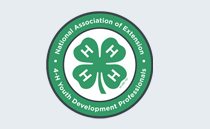Abstract
In this cross-sectional study, we investigated the multi-level educational intervention among youth in a low-income, remote community in Hawai‘i, United States. The program aided with middle schoolers’ transition into adulthood through youth-adult partnerships, teen mentoring, and community sustainability. Drawing upon social capital framework, we explored participants’ experiences and how the intervention promoted positive developmental outcomes among the youth. We recruited youth from a rural Title I Middle School in Hawai‘i. Nine youth (nboys=6, ngirls=3; Mage=13; 44.9% Native Hawaiian or Other Pacific Islander, 44.4% Black or African American, 33.3% White, 22.2. % Asian; participants could select multiple races), teen mentors (ngirls=3; Mage=18), and an adult partner (male; 24 years old) participated in 26 virtual club meetings in Spring 2021. This qualitative study consisted of 27 participants who took part in focus groups and observations. Three themes emerged: skill development, youth-adult relationship building, and sense of belonging. These social components encouraged the sharing of knowledge and feelings among participants on horizontal and oblique directions through reciprocity and helped create a social norm of a supportive environment to make youth feel belonging to the group and the local community. Multi-level interventions that draw upon community resources and youth-adult partnerships can benefit at-risk, minority adolescent populations. We identified non-familial role models and a sense of belonging to one’s community as two key protective factors that may lead to positive cognitive changes when youth transition into adulthood.
Recommended Citation
Sustarsic, Manca; Eng, Sothy; Ooki, Nancy; and Greenwood, Heather
(2023)
"“It Takes a Village!”: Social Capital Building in a Remote Hawai‘i Community,"
Journal of Youth Development: Vol. 18:
Iss.
3, Article 8.
DOI: 10.5195/jyd.18.03.08
Available at:
https://open.clemson.edu/jyd/vol18/iss3/8



